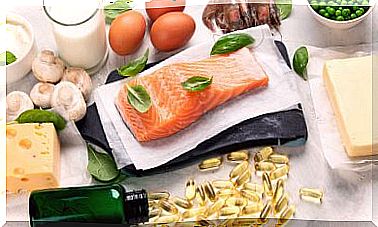3 Basic Keys To Regenerate And Heal The Intestinal Mucosa
Most of the digestive diseases have their origin in the intestinal mucosa. We must remember that the absorption of the nutrients that come to us from food is carried out throughout the small intestine and the colon through a process as complex as it is perfect.
What does this mean? That the cells of the intestinal mucosa must be in perfect condition to send the best nutrients to the bloodstream. If they are inflamed, diseased or saturated with toxins, bacteria to an inadequate selection of nutrients will enter the blood.
Thus, it is vital that the intestinal mucosa is healthy. We invite you to know 3 suitable keys to achieve it.
The danger of intestinal hyperpermeability
Intestinal hyperpermeability is the process by which substances that have not been selected by the intestinal mucosa enter the system. They are, therefore, substances that can make us sick.
When these harmful elements are captured by the immune system, what it does is initiate an inflammatory response to combat the risk or threat. If this ailment is prolonged, we would speak of chronic inflammatory diseases.
What Causes Intestinal Hyperpermeability?
One cause may be an allergy or intolerance to certain foods . Sometimes there are drinks, vegetables, fish or condiments to which we are allergic and we do not know. We notice that they make us feel bad and that they inflame us, but we continue to eat them. A common example is dairy.
It is interesting to know that many medications damage the intestinal mucosa and can prevent proper absorption of nutrients. Long-term use of stomach protectors, antibiotics, or chemotherapy often have these kinds of side effects.
Nor can we neglect the health of the microbiota or intestinal flora. If we do not have enough acidophilic bacteria to fight against germs or the candida fungus, we can suffer from hyperpermeability problems in the intestinal mucosa.
Read also: Difference between food allergy and intolerance
Keys to regenerate the intestinal mucosa

1. Increase digestive enzymes
Few of us worry about digestion until we start to have problems, until discomfort, gas, inflammation or even irritable bowel appear.
We must remember that digestion begins at the same time that we choose what food we are going to eat. To protect and strengthen the intestinal mucosa we need, first of all, that digestive enzymes reach us.
Thanks to them, the digestive process will be much better and we will help the cells of the intestinal walls to make an adequate selection of the nutrients that will enter the bloodstream. These foods can help you get digestive enzymes :
- The Kiwi.
- Grapes.
- Bee honey.
- Pineapple, ideal for reducing inflammation.
- Raw vegetables like celery, broccoli, parsley.
- Papaya, very suitable, for example, for people who do not produce enough pancreatic enzymes.
2. Clean the intestinal mucosa

We call “biofilm” that layer of harmful bacteria that have adhered to the mucosa and that prevent us from absorbing nutrients properly. How to solve this problem? Take note of these tips:
- Drink more water a day, depending on your thirst, but trying to achieve at least 3 glasses a day, at least.
- If you find it difficult to drink water due to its insipid taste, you can opt for some homemade infusions made with natural ingredients or simply, making fruit drinks, such as water with lemon.
- Eat whole grain carbohydrates : brown rice, buckwheat, oats …
- Add sprinkled flax seeds to meals.
- It dispenses with sugar, dyes, sugary drinks and harmful fats in food.
- Get a little exercise every day, go for a walk, ride your bike, go swimming …
3. Regenerate the intestinal mucosa
Take probiotics, kefir is an excellent option. Also take prebiotics, a type of carbohydrates that the intestine cannot digest, but that have the ability to selectively modify the intestinal flora to strengthen it and serve as a substrate. You can find them in:
- Bananas
- Tomatoes.
- Leeks
- Artichokes
- Asparagus.
- Garlic and onion.
- Whole wheat and chicory.
You can consult with your doctor about glutamine, quercetin, or N-acetyl-D-glucosamine supplements that may be useful in regenerating the intestinal mucosa.
Your lifestyle habits influence the intestinal mucosa

To conclude, having a healthy and strong intestinal mucosa basically depends on lifestyle habits, including eating habits. Therefore, we could summarize all the guidelines that you must take into account in these points:
- Take care of everything you decide to put in your mouth. Think that any dish rich in fat, or any sugary drink with bright colors, is going to translate into toxins that adhere to the intestine.
- Strengthens the bacterial flora by regularly consuming probiotics, within a balanced diet.
- Lead an active life, do some aerobic exercise or an activity that keeps you active, such as dancing.
- Learn techniques to manage your stress, as it tends to play bad health tricks if we don’t take good care of ourselves, even mentally.
These are habits and tips that will not cost you any effort to put into practice, but that the body will undoubtedly appreciate.








